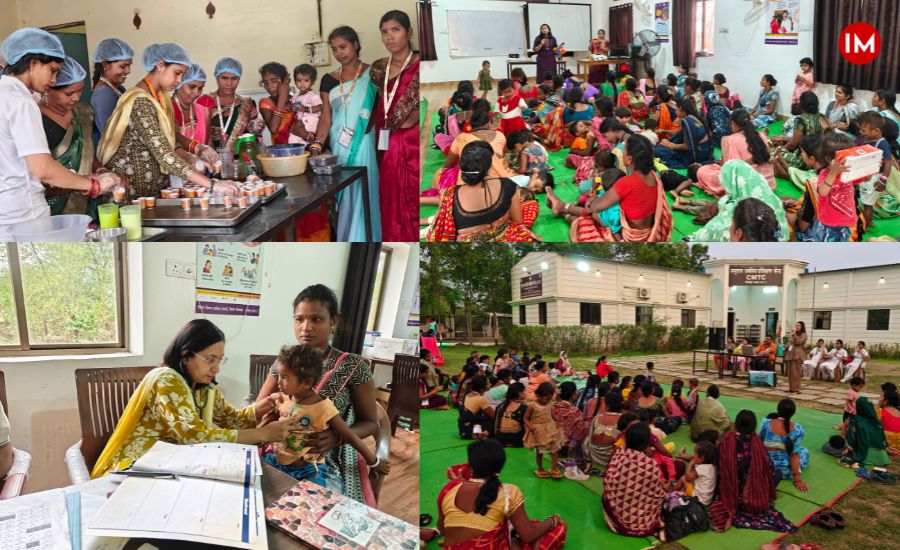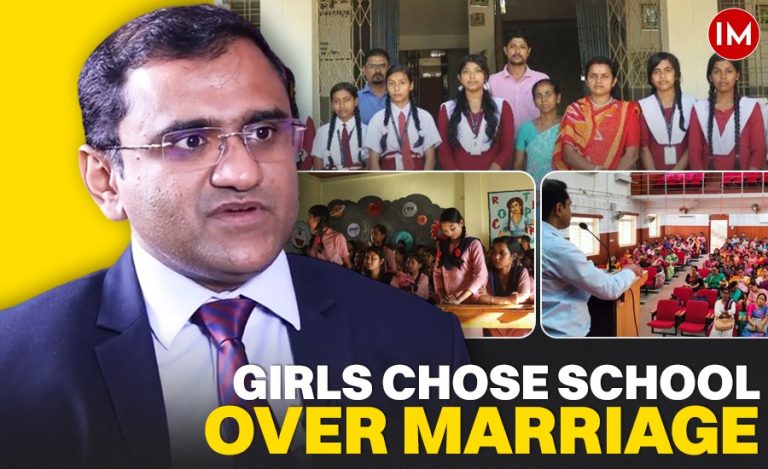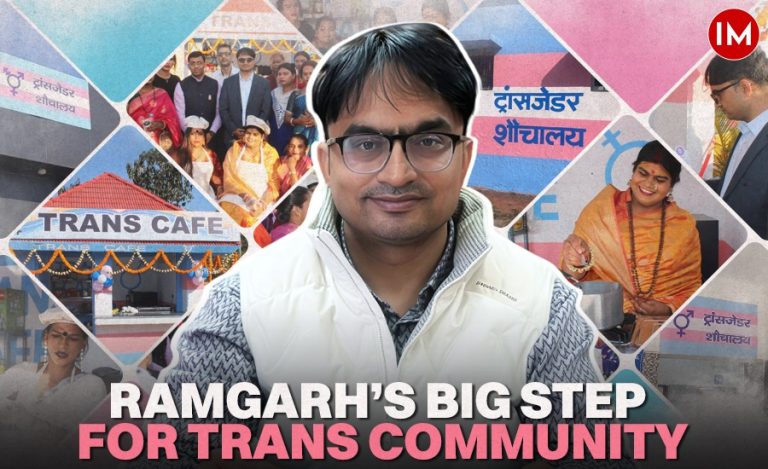In Raipur, Chhattisgarh, a groundbreaking initiative is addressing one of the state’s most pressing challenges: severe acute malnutrition (SAM) among children. The Chiranjeevi Raipur Abhiyan, spearheaded by the Raipur District Administration under District Collector Gaurav Kumar Singh, IAS, has emerged as a transformative model for tackling malnutrition through a comprehensive, community-focused approach.
With over 1,400 SAM children registered in the district, this initiative has introduced a 100-bed Nutrition Rehabilitation Centre (NRC) to provide critical medical and nutritional support, alongside empowering mothers with skills to sustain long-term health improvements.
A MOTHER’S JOURNEY OF HEALING AND HOPE
For Manju Goswami, a resident of Dudhadhari Math in Raipur, the Chiranjeevi Centre became a sanctuary. “I heard about the Chiranjeevi campaign from the Anganwadi Didis—that malnourished children are being taken care of here. So, I brought my little daughter,” Manju shares, her voice carrying a mix of relief and gratitude. Initially hesitant, she recalls, “I was nervous. How would I stay? How would I manage my child? But once I arrived, it felt like I had found a family.” Daily activities like yoga, cooking, sewing, and games turned the centre into a place of learning and healing. Her daughter, who once refused home-cooked meals, began embracing the nutritious diet provided, marking a turning point in her health.
Yashoda Manikpuri from Birgaon shares a similar story of transformation. “My baby was born in the seventh month, weighing barely a kilogram. I was terrified,” she recounts. Guided by an Anganwadi worker, Yashoda enrolled in the programme. “Her height and weight were monitored every day, and slowly she started gaining strength. Her weight has now increased significantly by two kilograms,” she says, beaming with hope.
Yashoda herself received unexpected care when a severe dental issue was diagnosed and treated. “This is not just a rehabilitation centre for malnourished infants; it is a haven of love and care for mothers like me,” she adds, her eyes welling with emotion.
A VISION TO BREAK THE MALNUTRITION CYCLE
The Chiranjeevi Raipur Abhiyan was born from an urgent need to address severe acute malnutrition (SAM), which affects over 1,400 children in Raipur, as tracked by the Poshan Tracker app. With limited hospital beds for Nutrition Rehabilitation Centres (NRCs), the district administration, under Dr Gaurav Kumar Singh’s leadership, envisioned a 100-bed facility to provide intensive care for children aged six months to four years and their mothers.
“Children identified by the Women and Child Development Department were enrolled, brought, and kept under constant supervision with their mothers. Each child’s health status was meticulously monitored daily, and mothers received nutrition kits and expert guidance,” Dr. Singh shared with Indian Masterminds.
Originally designed for 150 beds, the centre was upgraded to accommodate an additional 50 mother-child pairs. A dedicated medical team, including doctors, nurses, and health trainees, worked in three shifts, supported by personalised meal plans crafted by an expert dietitian to meet each child’s nutritional needs.
MEASURABLE IMPACT IN ONE MONTH
At the programme’s outset, the children’s nutritional status was dire: 39% fell in the -3SD category (severely malnourished), 30% in -1SD, 16% in -2SD, and 15% in -4SD, per WHO growth standards. After one month, the outcomes were striking: 47.9% of children gained 0–5% of their body weight, 30.8% gained 5–10%, 13.9% gained 10–15%, and 7.4% achieved over 15% weight gain—a remarkable improvement. “These results demonstrate the power of targeted interventions to deliver rapid, measurable health outcomes,” says Dr Singh.
EMPOWERING MOTHERS FOR LASTING CHANGE
Chiranjeevi Raipur goes beyond medical care, fostering a holistic ecosystem where mothers are active participants. Daily training modules on hygiene, child care, breastfeeding, and complementary feeding equipped mothers with practical skills. Sessions on livelihood-oriented activities like baking, tailoring, and cooking opened pathways for economic empowerment. “The training provided to mothers is transformative. It equips them to sustain their children’s health and creates opportunities for self-reliance,” notes Dr. Singh.
The centre’s compassionate environment, backed by self-help groups and women’s collectives, turned it into a vibrant community. Birthdays, festivals, and health milestones were celebrated together, fostering solidarity and a sense of belonging. “Mothers are not just recipients of aid but co-creators in this journey of revival,” Dr. Singh emphasises.
SUSTAINING PROGRESS POST-REHABILITATION
To ensure lasting impact, Chiranjeevi Raipur integrates facility-based care with community-based monitoring. After the programme, children are enrolled in Anganwadis, where workers track feeding practices, hygiene, medication, and growth. This continuum of care ensures that the gains made during the camp are sustained at home.
The success of Chiranjeevi Raipur has inspired plans to replicate the model across all blocks in the district. By integrating with programmes like the Integrated Child Development Services (ICDS) and fostering collaboration between the Health and Women & Child Development Departments, the administration aims to build a sustainable framework. Regular medical screenings, supplementary feeding schemes, and Anganwadi-based monitoring will drive long-term malnutrition reduction.
“Our goal is to create a district-wide ecosystem that prevents malnutrition through coordinated efforts,” Dr. Singh shared with Indian Masterminds.
A BLUEPRINT FOR CHANGE
Chiranjeevi Raipur is more than a programme—it’s a movement that blends compassion, innovation, and community action to tackle malnutrition at its roots. By prioritising the health of children and the empowerment of mothers, Raipur is setting a model that could inspire similar efforts across Chhattisgarh and beyond. For mothers like Manju and Yashoda, the initiative has not only restored their children’s health but also reignited their confidence and hope for a brighter future.
































